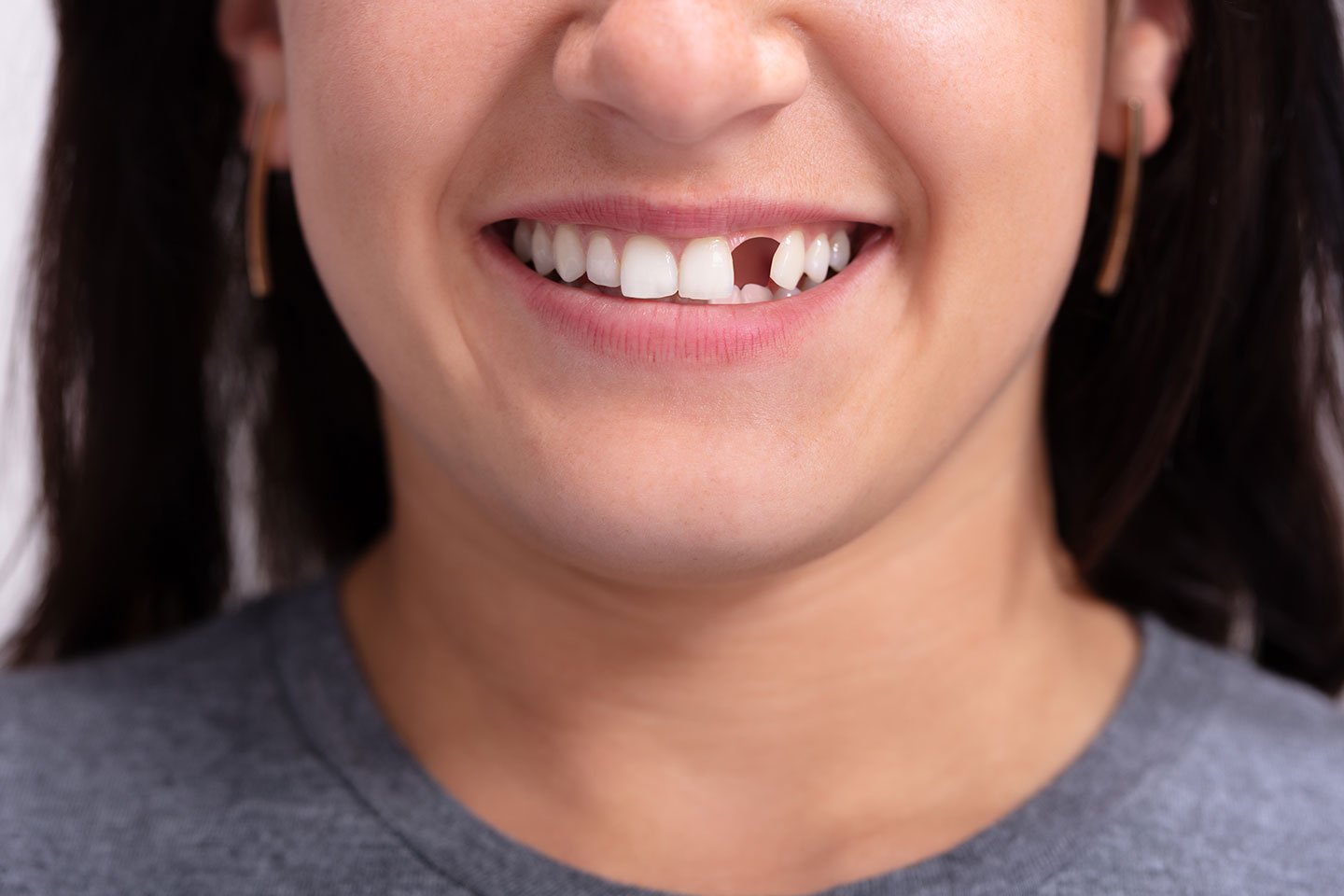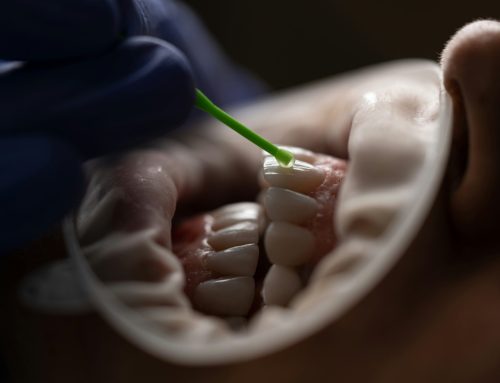Healthcare has evolved over the years, including how your dentist will approach replacing missing teeth. Whether you’re down one or a few, options are available so that you can chew more easily and smile confidently. From dental implants to dentures, each avenue has several pros and cons – you just need to determine what’s best for you and your lifestyle. Read on to learn more about your options and if you even need to replace missing teeth.
Do You Need to Replace Missing Teeth?
Perhaps you’re missing a tooth that’s not too obvious, and the thought of getting a dental bridge isn’t appealing right now. It’s not all about cosmetics when it comes to finding a solution for your missing teeth.
Your teeth work together to help you eat, speak, and support your oral health. If you’re missing one or more, it can make it uncomfortable to chew or impact your jaw and facial muscles. It can even cause your teeth to shift, which will change the shape of your face over time.
Your dentist will be able to help you determine the best course of action. Here’s what you can expect if you’re investigating what could be available to treat your missing teeth.
Options for Replacing Missing Teeth
There are several permanent and temporary solutions for replacing missing teeth. Some are more expensive, and others are more invasive. However, they all have their own unique set of advantages that may benefit you. Here is a brief overview of the popular options.
Dental implants
Dental implants are a durable option that works for one missing tooth or even several teeth. They also have a natural finish, are safe for your surrounding teeth, and last for a long time. This makes them the most attractive option. The downside is that they can be more expensive than other solutions.
Dental implants artificially replace your tooth root with a post (typically titanium), which fuses to your jawbone over time. Once it’s fused, which can take several months, you’ll get a crown. The final product is a tooth that looks as natural as the rest of your smile.
Dental implants are favoured for their durability and because they’re a permanent solution. They also require minimal maintenance and act just like the rest of your teeth. The cons are affordability and the length of treatment time in order to achieve long-lasting results.
Dental bridge
A dental bridge is just like it sounds – it bridges the gap between one or more missing teeth. You can either have a tooth-supported fixed bridge or an implant-supported fixed bridge. The difference between each dental bridge is how they are held in place.
An implant-supported bridge is a great option if your missing teeth are beside each other and you’re looking to save on paying for individual dental implants in that area. It’ll give you the same natural result and can be treated like your natural teeth when it comes to maintenance.
A tooth-supported fixed bridge is recommended for those who don’t want to undergo any surgery and want a faster solution that takes weeks instead of months. Your two surrounding teeth will get filed down and fitted for a crown on either side, which is attached to your replacement teeth to fill the gap. It’ll be permanently cemented in place, just like a typical permanent crown.
This option is more cost-effective, but it’s more harmful since you’ll have to adjust perfectly healthy teeth to achieve the desired result. It also doesn’t last as long as an implant-supported bridge.
Dentures
Partial and complete dentures are another option if you’re looking for replacing missing teeth. A removable partial denture works best for missing teeth in the same arch, and they don’t necessarily have to be adjacent.
It has clasps that fit over your existing teeth to hold them in place but can still be removed for daily cleaning or when required. The downside is they don’t look as natural and can be a bit uncomfortable to get used to. You’ll have to be responsible with them, cleaning them every day and removing them at bedtime. They can also break more easily. This may be best for those who can’t access dental implants or have strong natural teeth. Removable dentures act the same way, except they rest on your gums.
Whether you’ve come by missing teeth through gum disease, injury, or other reasons, it can be stressful to think about what to do next. Our family dentistry is here to help you navigate your options by assessing your personal situation. We’ll be here to answer your questions and give the best recommendation for your dental health journey. We consider the complete picture for long-lasting results, with comfort and confidence at the centre of your treatment plan. Contact our office to book your dental consultation today.
Have you ever experienced one or several missing teeth? What solution was the best for you? Share your story with our readers in the comments below, so they know what to expect.






Leave A Comment